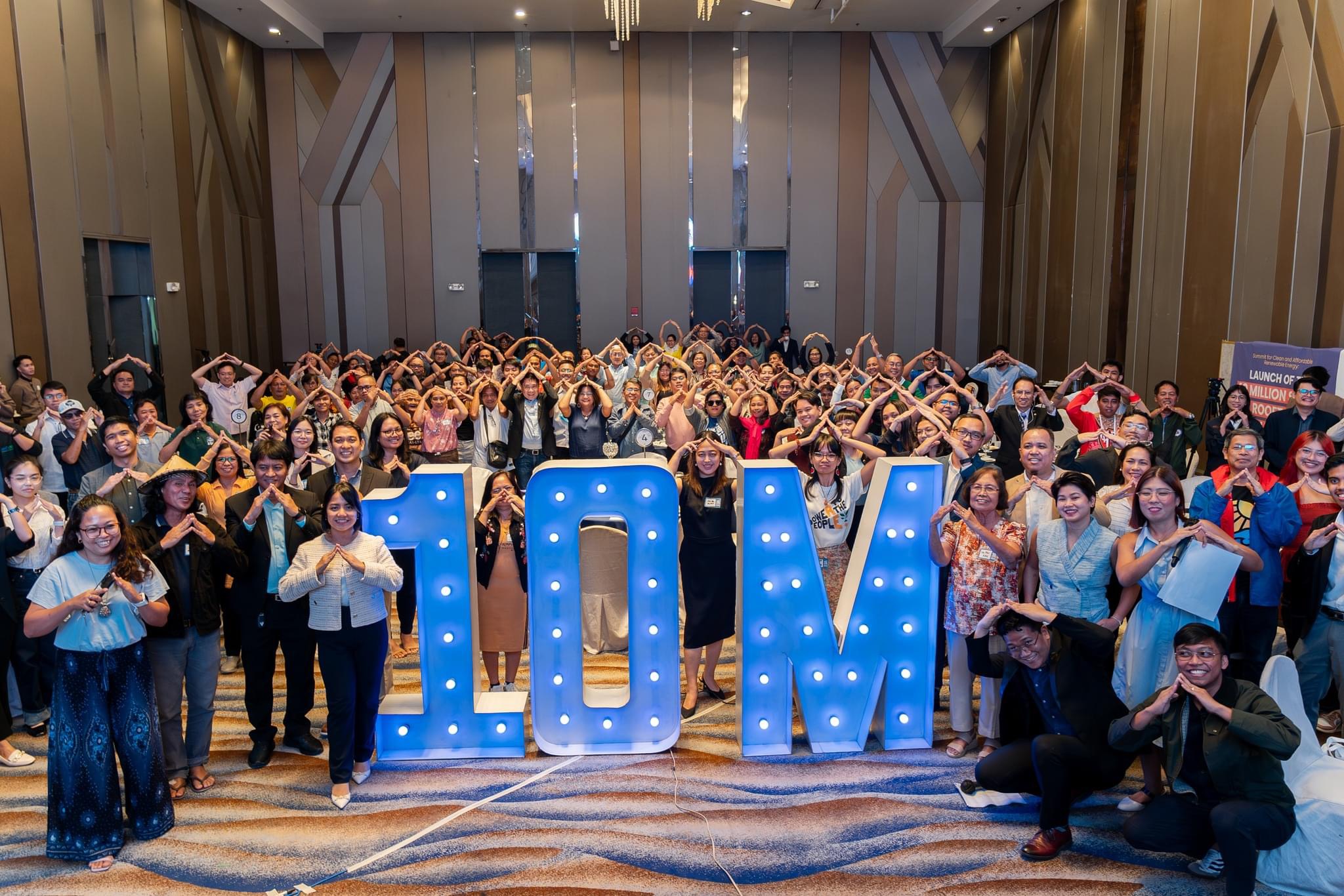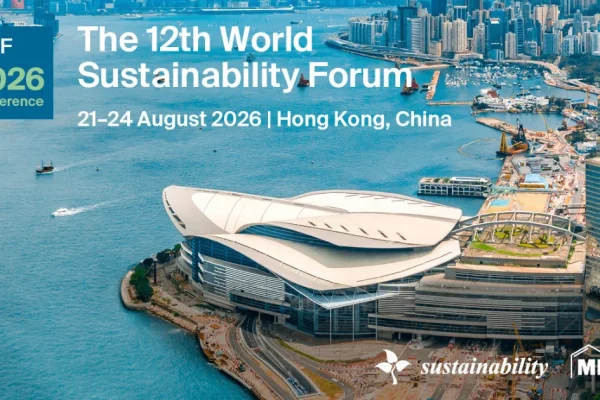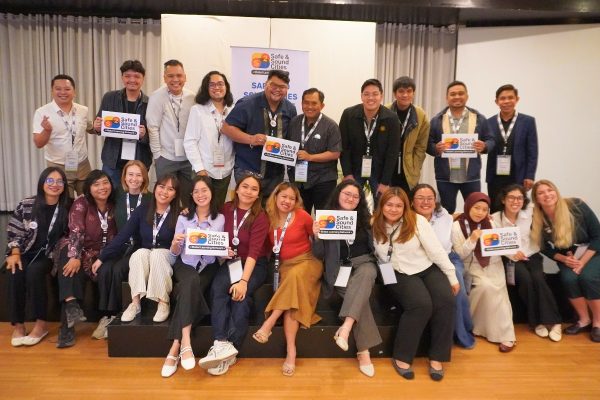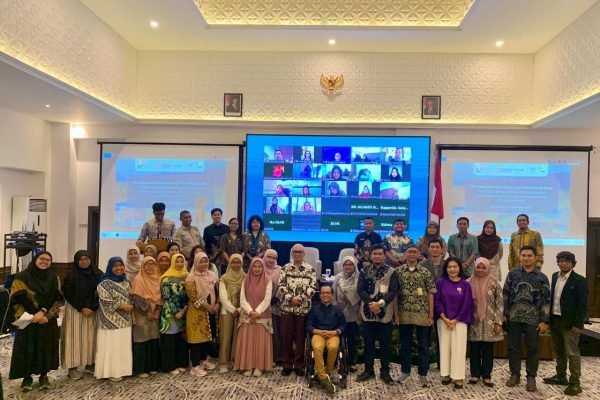(in photo above) Multi-sectoral advocates for renewable energy during the 10-million Solar Rooftops Challenge launch on 16 July 2024. Photo from the Center for Energy, Ecology, and Development (CEED) Facebook page.
The 10-million Solar Rooftops Challenge in the Philippines has been officially launched during the third Summit on Clean and Affordable Renewable Energy (CARE) on 16 July 2024 in Quezon City.
Attended by over 150 representatives from the national government, local government units, non-profit organizations, civil society, people’s organizations, academe, and the youth, the challenge aims to establish 10-million solar rooftop photovoltaic (PV) systems across the island nation through multi-sectoral advocacy and cooperation.
Organized by the Center for Energy, Ecology, and Development (CEED), a Philippine think-do organization, the challenge encourages individuals, households, businesses, government bodies, organizations, schools, establishments, churches, offices, and local and national government units and agencies to support the achievement of the 10-million target through: spreading word of the campaign, promoting the possibilities of distributed renewable energy in general and solar rooftop PV in particular; committing to invest in and installing their own solar rooftop PV systems; or implementing programs, projects, and activities for solar rooftop PV facilities within their scope of influence.
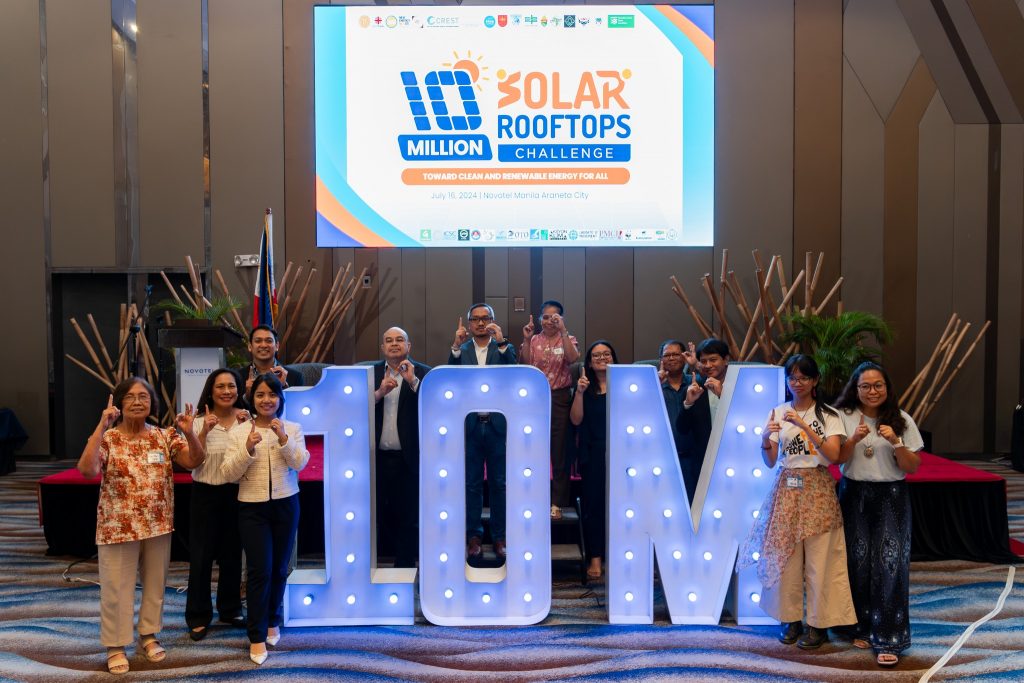
Multi-sectoral advocates for renewable energy during the 10-million Solar Rooftops Challenge launch on 16 July 2024. Photo from the Center for Energy, Ecology, and Development (CEED) Facebook page.
CEED Deputy Executive Director Atty. Avril de Torres highlighted that the Philippines has great renewable energy potential, with solar rooftops alone estimated to be able to produce as much as 91GW of clean energy.
At a conservative estimated capacity of 1kW per installed system, establishing 10-million solarized rooftops would yield a potential 10GW or over a third of the Philippines’ total current installed capacity.
Speaking in a recorded message, Philippine Senator Lorna Regina “Loren” Legarda said that “This Summit on Clean and Affordable Renewable Energy alongside the launch of the 10-million Solar Rooftops Challenge marks a pivotal moment in our nation’s pursuit of energy independence, environmental stewardship, and economic resilience.
Senator Legarda added “Our goal of 10-gigawatts of solar capacity will decentralize power structures, boost economic growth, protect the environment.”
Multi-level and multi-sectoral perspectives on the renewable energy transition
In addition to the launch, the summit saw various multi-sectoral panel discussions which tackled how ambitious renewable energy actions and policies fit in the Philippines’ pledge to the Paris Agreement goal of keeping global warming to 1.5°C; the opportunities and challenges to deploying rooftop solar PV and other distributed renewable energy systems; and on-the-ground experiences from communities who have installed and sustained rooftop solar PV systems.
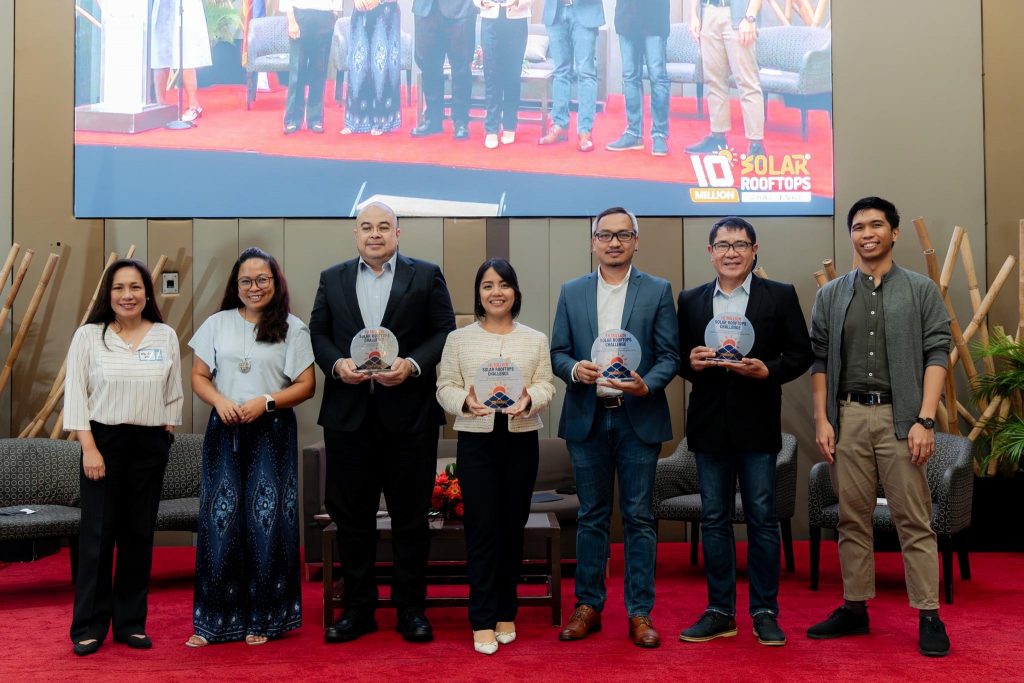
(from left) Atty. Gia Ibay, Head of the Climate Change and Energy Programme of WWF Philippines; Jing Henderson, Caritas Philippines Head of Communications and Partnerships Development; Climate Change Commission Assistant Secretary Romell Cuenca on behalf of Secretary Robert Borje; Atty. Avril De Torres, Deputy Executive Director of the Center for Energy, Ecology, and Development; Atty. Aaron Pedrosa, Secretary-General and Head of Energy Working Group of Sanlakas and Philippine Movement for Climate Justice; Mr. Rodel Parcon, Executive Assistant III on behalf of Mayor Alfredo “Albee” Benitez, of Bacolod City, Negros Occidental; and Chris Hidalgo, Communications Head of ICLEI Southeast Asia during the panel on “Raising Renewable Energy Ambitions for a 1.5C-Aligned Philippine Power Sector.” Photo from the Center for Energy, Ecology, and Development (CEED) Facebook page.
Among the panelists include representatives from the Climate Change Commission; Department of Energy; Energy Regulatory Commission; Bacolod City; SANLAKAS; Philippine Movement for Climate Justice; Institute for Climate and Sustainable Cities; World Resources Institute; Kilusan para sa Kabuhayan, Kalusugan, Kalikasan at Katiyakan sa Paninirahan sa Quezon City; Mina de Oro PGS Association; Samahan ng Mamamayan Zone One Tondo (SM-ZOTO); and the Association of Small Farmers.
Moreover, videos of renewable energy hope spots around the country were also featured, including ones from SM-ZOTO and the Ateneo de Davao University (AdDU).
Through the support of CEED and the New Zealand Embassy, SM-ZOTO installed a 5kW solar rooftop PV system in their Navotas City office which also houses its own Renewable Energy Urban Poor Training Center. Meanwhile, AdDU led by its engineering faculty and staff, installed a total of 1MW solar PV systems on its three campuses’ rooftops, saving the university PHP 1.6-million per month and avoiding over 350 tons of carbon dioxide emissions per year.
How to support and commit to the challenge
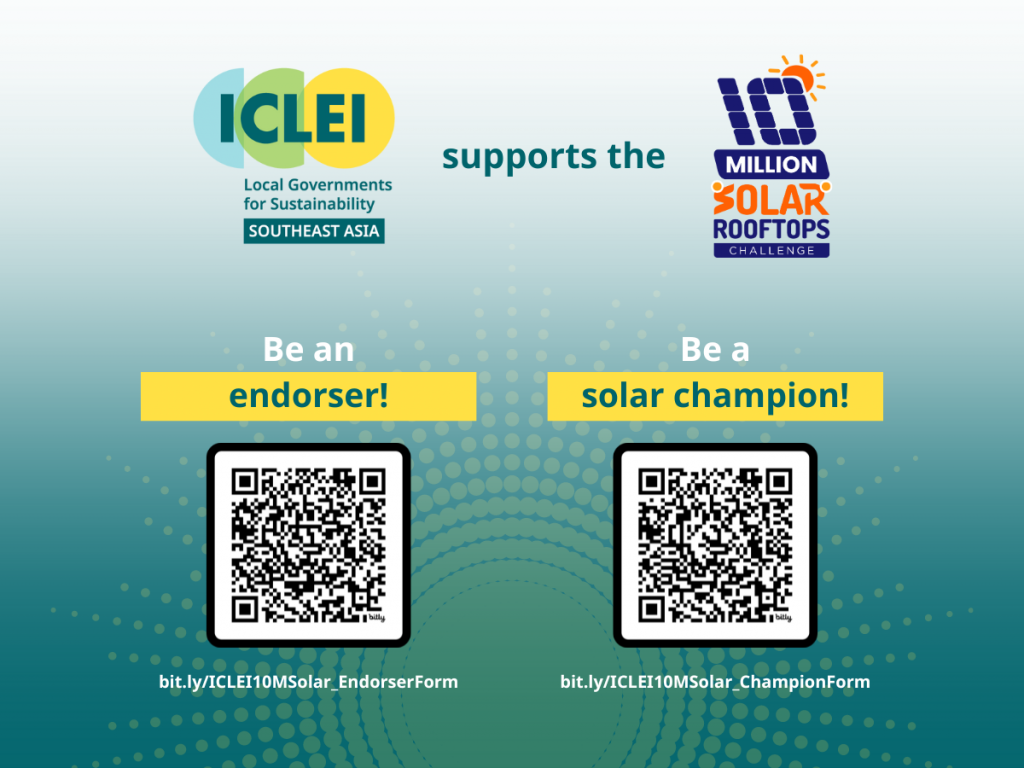
Individuals and organizations interested in supporting and committing to the challenge can do so by becoming an endorser and raising awareness of the initiative, or by being a solar champion and committing to install solar rooftop PVs as well as logging currently-installed systems under the campaign.
ICLEI Southeast Asia serves as a campaign co-convenor and endorser. It is currently undertaking various engagements related to the renewable energy transition, including developing the renewable energy roadmaps of Eastern Samar and Albay Province in the Philippines; and West Nusa Tenggara, Indonesia. Through the RENEW-SEA project, ICLEI Southeast Asia is also currently supporting awareness-raising, outreach, and capacity building to spur local and regional governments in Indonesia, Malaysia, and Thailand to lead the renewables-based transition in their communities.

